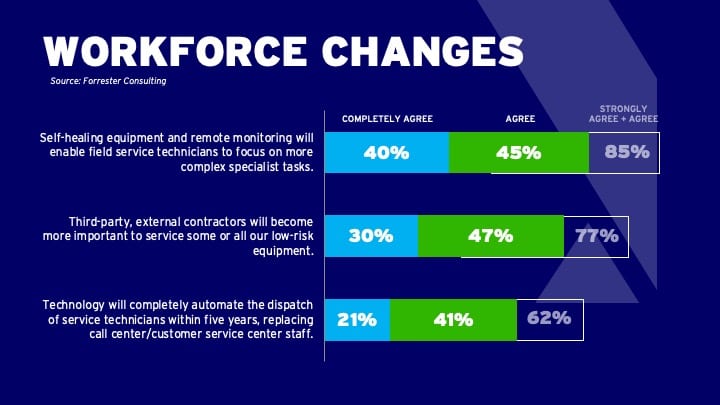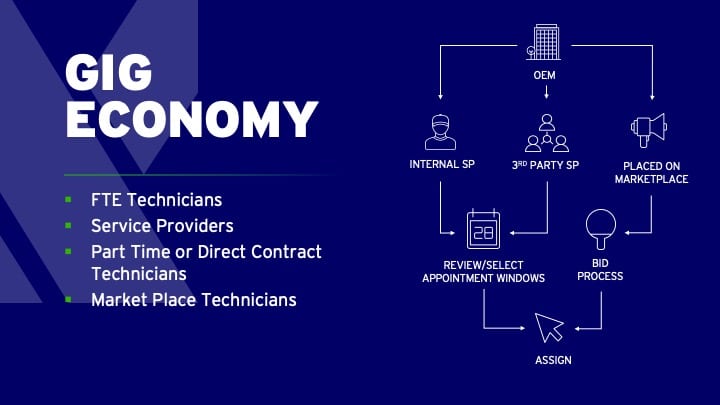Who are the risk-takers? The companies that invest in full-time employees to deliver your service promise.
As we look at field service in this state of COVID-19, we are seeing some companies thrive, especially in the medical sector. But for most, the lockdown is causing huge strain as companies do their best to look after their employees. While many people now work from home, technicians, engineers, inspectors, etc. do not have that option. Instead, they are facing huge challenges or restrictions on their day-to-day tasks, including new health and safety protocols, or even being furloughed or laid off.
In 2019 Forrester posed the statement, “Third-party, external contractors will become more important to service some or all of our low-risk equipment” and found that 77% of respondents were in the “strongly agree” and “agree” bucket.

Of the many companies that I’ve talked to or worked with over the past five years, most have all had plans to increase their third-party or contractor base. But with no compelling event to put those plans into actions, many businesses have carried on with the same model that they’ve always had.
Now that COVID-19 has changed the way we work, if Forrester posed the same statement, “Third-party, external contractors will become more important to service some or all of our low-risk equipment” what do you think the responses would be?
COVID-19 Pushes Service Toward the Gig Economy
I believe that COVID-19 has become the compelling event to make businesses sit up and take notice. Businesses of all types, not just field service will and should look at the third-party, external contractors engineering marketplace to deliver a large proportion or indeed all of their manufacturing & field service work.

We see ‘white-glove’ providers on the increase for installations and many companies focus on maintenance calls only as repetitive low skill tasks. And now I believe there will be an increase in the break-fix, higher-skilled element as companies will want to mitigate that risk should anything like COVID-19 strike again. The ‘insurance’ will be to put the ownership of the employee in the hands of another provider and only pay per transaction—an outcome-based service. This will and does have its own issues that need to be overcome but it will allow for adaptability. It gives companies access to resources when they need them for spikes and general work, but also means that when the work has dropped or disappeared completely, they are no longer responsible for the technician and their associated costs such as car, tools, onboarding, pension and so on.
Some people may say that the risk of another pandemic is so slim that it is not worth considering, however, we have seen the impact and it is vast. But even if we do not see a medical pandemic again in our lifetime, we have a different type of crisis creeping up on us now: a shortage of technicians. We know that there is an aging workforce in the field service industry and there is a recognized shortage of STEM scholars exiting academia which will all lead to a different type of shortage in engineers/technicians and quality. COVID-19, the knowledge of the aging workforce, and STEM shortages have been some of the key reasons ServiceMax partnered with Krios to create a job board, the Field Service Finder, to help increase access to skilled workers.
With the pandemic slowly shifting to the rearview, where do you see yourself now? Are you one of the 77% who will be introducing contractors to your workforce within the next 12 months? Could you be the ‘Risk Taker’ that decides to provide the ‘Gig Economy’ for those who are concerned?


Share this: